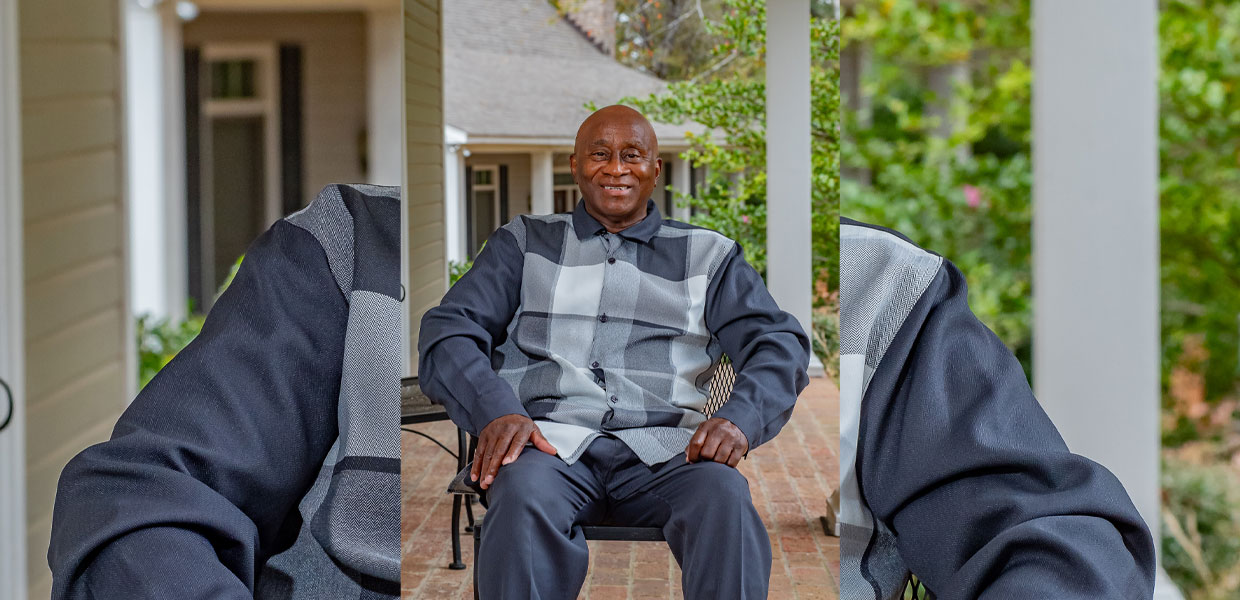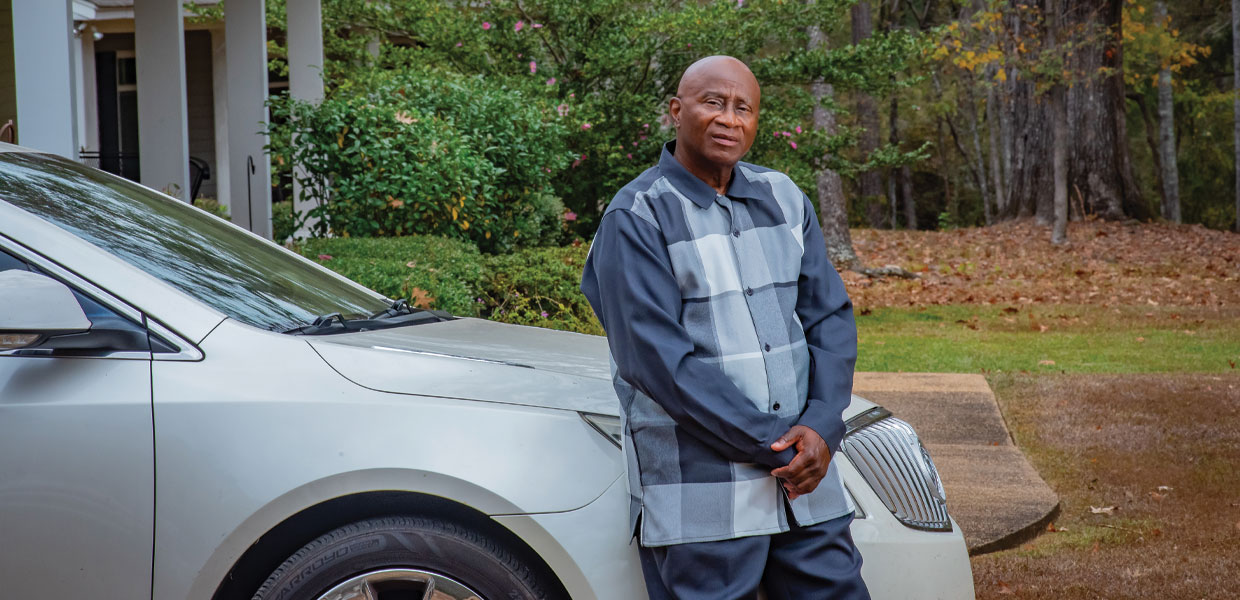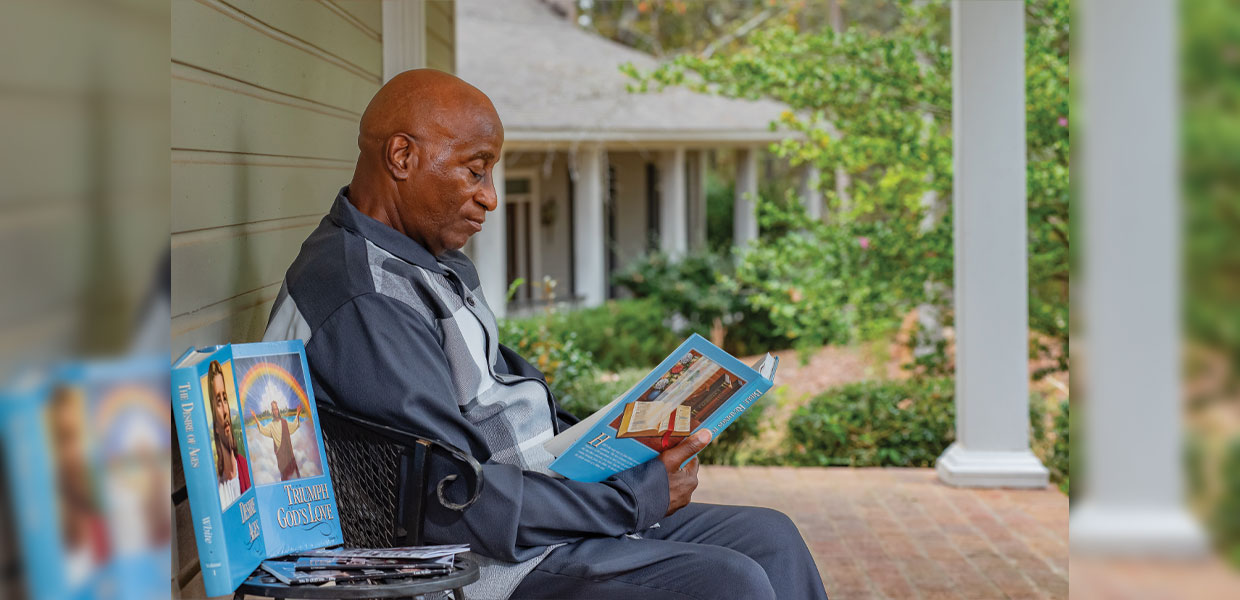
Edward Harden

Edward Harden

Edward Harden
James Bailey sat in the hard church pew as the preacher’s words echoed through the sanctuary. “If you don’t believe in Jesus you will burn in hell forever!” the preacher declared. At just 8 years old, James shrank further back in the pew. The words made him angry. “It’s not fair that God would send my friends to hell just because they don’t go to church,” he thought.
James decided he didn’t want to be involved with God, and soon he had the chance to ditch church entirely, as long as he could get away with it.
James’s mother, now working on Sundays, sent him to church alone. James, dressed in his Sunday best, would head toward church and take a slight detour to a nearby playground to play instead. His friends, eager to assist in his mission, brought him clothes to play in so he wouldn’t dirty his church clothes.
When James realized how easy skipping church was, he began skipping school too, only showing up for important exams. Still, James did well in school and his future looked bright. He graduated high school with plans to pursue engineering, but the Vietnam War draft altered his plans. When his number was drawn, James decided to take the military exam and chose a career in the Air Force.
James became a master technician for the Strategic Air Command, eventually rising to the rank of noncommissioned officer. One day, tasked with instructing new airmen on painting a plane, he noticed the aircraft was running, making it unsafe in his opinion to paint it. He spoke with the crew and asked them to cut the engines, but the crew refused as they were running maintenance tests. James was told he should proceed with his painting assignment, but, concerned for his trainees’ safety, he led them away from the plane.
When the lieutenant colonel learned that James hadn’t completed his painting assignment, he retaliated by assigning him to latrine duty. One weekend, just before James was set to leave the base to attend his brother’s funeral, he was ordered to clean the latrine. After thoroughly cleaning it, James waited for an inspection. But before anyone could check, a couple of servicemen entered, shaved, and left the bathroom a mess.
Determined to discredit James, the lieutenant colonel demanded he clean it again. Frustrated and desperate to catch the last bus to his brother’s funeral, James argued that the latrine had already been spotless. But, the officer was unsympathetic. With no choice, James cleaned the sinks again, barely making the bus — though the colonel never bothered to return and inspect his work.
The lieutenant colonel, eager to find a reason to get James kicked out, saw his combative attitude as grounds for a court martial. During the trial, the accusations against James piled high. Yet, when the evidence was presented, it became clear that James had a strong work ethic and a good character. James was exonerated, but the experience left deep emotional scars. When his enlistment ended, he chose not to re-enlist. When James finished his service, he was ready for no rules and the newfound freedom he possessed. He wanted to rebel. He indulged in marijuana and other vices, rebelling against the structure he’d left behind. He grew his hair and facial hair to a length the military would never allow.
Outwardly, life seemed good. He lived with his parents, he had friends, and he was in school. But inside, James felt a growing sense of emptiness. His efforts to fill the void he felt were in vain.
One night James and a friend relaxed on his parents’ patio, smoking. James’ friend went to use the bathroom, and James made his way to the kitchen to get a soda. As he lifted the drink to his mouth, he heard an audible voice that was not his friend’s. “You think all these things can make you feel better than I can,” said the voice. “Why don’t you try me?”
James was stunned. He set down his soda and rushed back out to the porch. His friend returned shaken. Both men had heard the same voice.
From that moment, James began to rethink his life choices. Over time, he gave up smoking, realizing it didn’t fill the void he felt.
James’ life started to turn around. He began working at a General Motors factory, continued attending school, and even bought his own house. But then another strange event occurred. One day, as he was driving from school to work in his turquoise 1970 Oldsmobile Cutlass, lightning appeared from a cloudless sky and struck his hand. The bolt hit the ring he wore — a masonic symbol of his rank within the organization. James was shaken by the experience and on his first break during work he shared with a co-worker about it. His co-worker, who was a Christian, told James, “God has something for you to do, and you need to listen to Him.”
James got off around midnight that day and turned on the radio as he drove home. While tuning the station, James heard a preacher delivering a sermon on Psalm 51 and listened to it until he got home. As James sat in the driveway, he had another encounter with God and felt the Holy Spirit working on his heart.
Determined to learn more, James bought a Bible and sought out a Christian co-worker who always read books on his breaks. James asked how he could get a copy of the books for himself. The co-worker replied, “The only way you can get these books is if you come to church this Saturday.” James questioned the man, “Saturday? You mean Sunday.” The co-worker reassured James he meant Saturday. James was surprised. Saturday was for washing his car and other tasks, not for church. But, despite his surprise, James was eager for the books and attended. At the end of the sermon, when a call was made for those who wanted to know more, James raised his hand.
A literature evangelist met with James the next morning. James bought a copy of every book his co-worker had. As he read The Desire of Ages, The Great Controversy, and Bible Readings for the Home, his thinking shifted. What he discovered led him to believe in the Sabbath and he joined the Church. With deep conviction, James asked his manager for Friday nights off to honor the Sabbath. The manager said he was unable to accommodate James’s request. James was unwavering in his decision — he had to keep the Sabbath, so he had to quit. Without a job and with bills piling up, James faced uncertainty. But he trusted God had a plan. Even without a certain future, James felt more fulfilled than he ever had before. While his family supported him through the first month, he knew he needed a sustainable solution. His newfound faith and his personal experience with the power of the printed page led him to become a literature evangelist.
At first, literature evangelism seemed like a simple way to pay the bills, but as James went door to door, he realized it was far more than that — it was a calling. The more he shared books like the ones that transformed his life, the more he saw lives of others transformed too. James felt a sense of purpose with every book he shared, knowing that each one he handed out could potentially change someone’s life forever. His previous struggles gave him a unique ability to connect with people that other evangelists couldn’t reach.
Though James later held different full-time jobs, his passion for sharing the Good News remained constant. To date, James has distributed more than 100,000 tracts, witnessing firsthand how literature has transformed not only his own life but the lives of many he has encountered. Now serving as a lay pastor in Mississippi, James continues his mission. “Literature evangelism is a lifeline,” he said. “It really saved my life.”
is the associate communication director for the Southern Union Conference.
Southern Union | December 2024



Comments are closed.